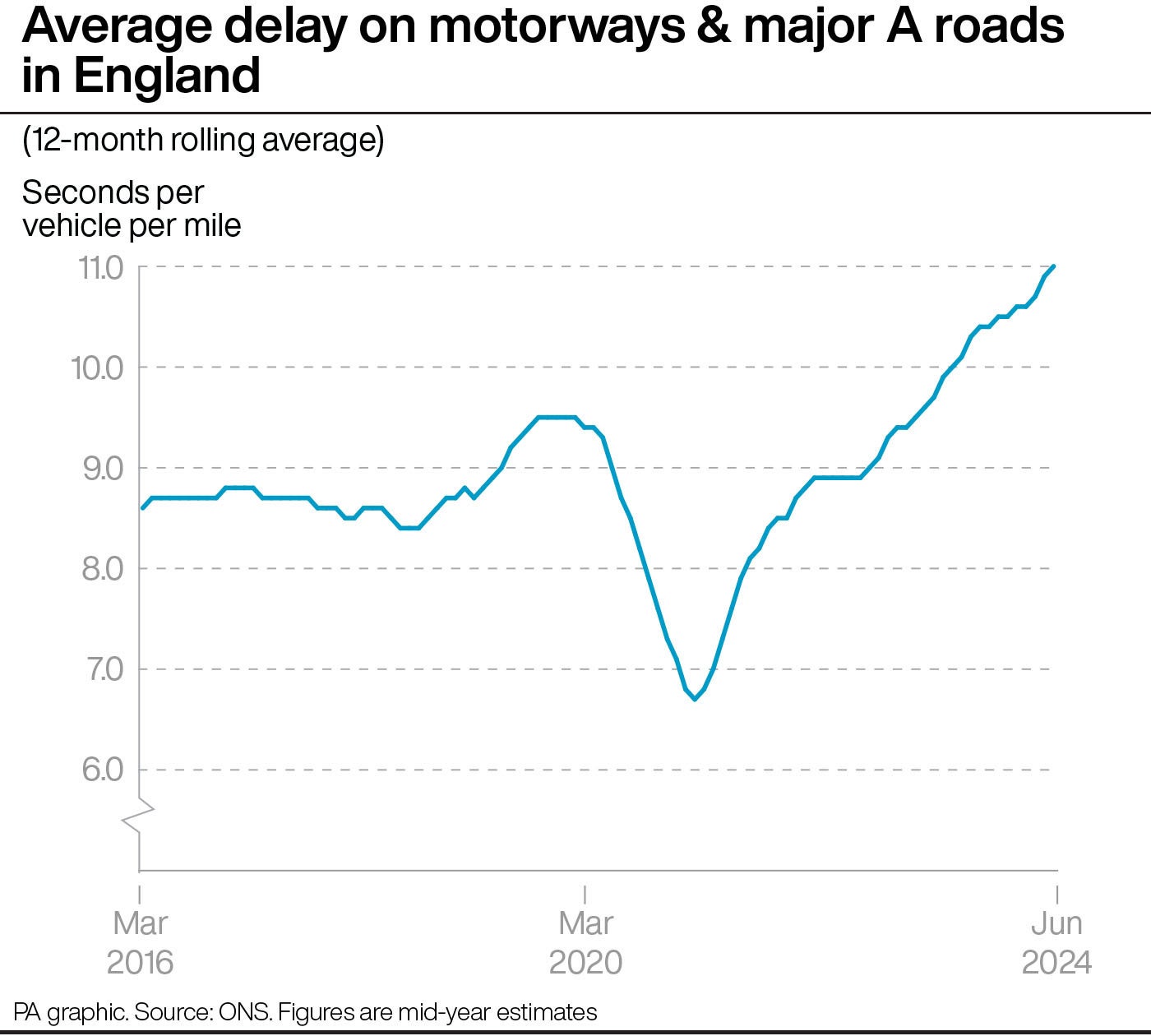Drivers on England’s major road face a record level of delays, official figures show.
Average hold-ups on carriageways managed by National Highways reached 11.0 seconds per vehicle per mile (spvpm) in the year to the end of June, according to Department for Transport data.
That is the longest time in records dating back to March 2016, when the figure was 8.6spvpm.
The statistics relate to motorways and major A roads.
Average speeds on these roads have fallen to a record low of 56.5mph in the year to the end of June.

That is down from 58.8mph in the year to the end of March 2016.
RAC head of policy Simon Williams described the figures as “worrying”, because the number of miles travelled by road remains slightly below pre-pandemic levels.
He said: “This latest data appears to show that right across England, average speeds on major roads are down and delays are up, both year on year and compared to before Covid.
“While an increase in traffic volumes is no doubt a factor in delays increasing, it can’t be the only cause so we suspect other factors are likely to be contributing, whether that is roadworks or just traffic snarling up at known pinch points.
“Whatever the cause, delays can be frustrating and costly so we look forward to further details from the Government about where it is focusing its road spending for the duration of this Parliament.”
A spokesperson for National Highways said: “We know delays are frustrating but a number of factors contribute to slower moving traffic. The make-up of vehicles on the road is changing with more HGVs and larger vehicles together with fewer cars. This brings average speeds down.
“Roadworks are only in place where it is absolutely necessary. Our programme of improvements will result in long term benefits for motorists – shorter and more reliable journeys as well as safer and smoother roads. This work will help boost the economy.”
A Government decision on whether to go ahead with a new £9 billion road crossing between Kent and Essex will not be announced before next week.
Friday was the statutory deadline for whether to approve the 14.3-mile long Lower Thames Crossing, but the Department for Transport (DfT) said an update will be given “in due course”.
Work on the project has been ongoing since 2009, and more than £800 million of taxpayers’ money has been spent on planning.

